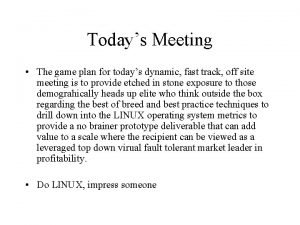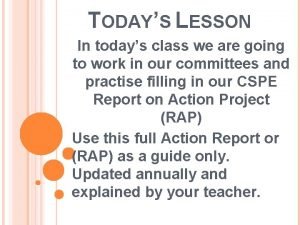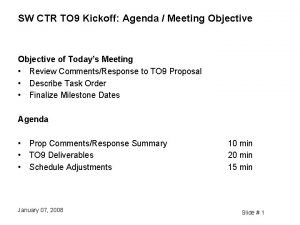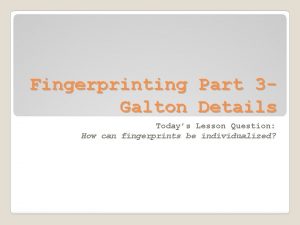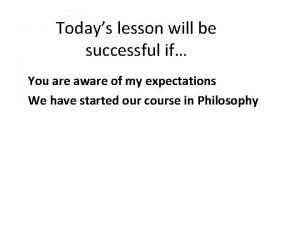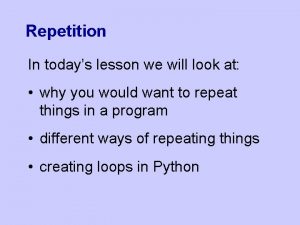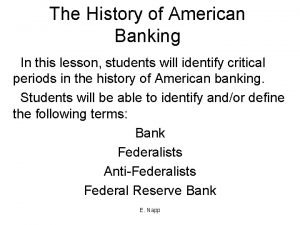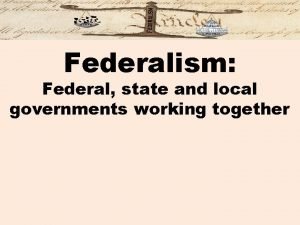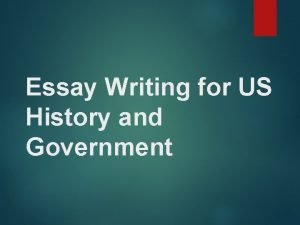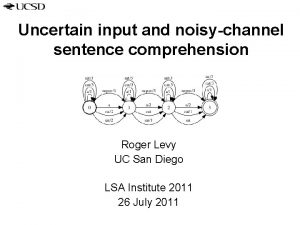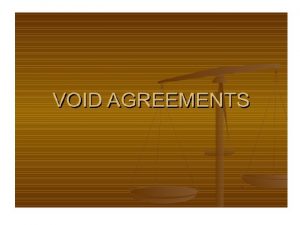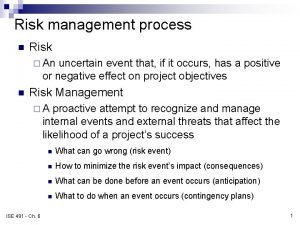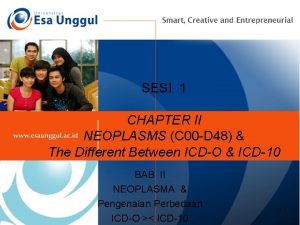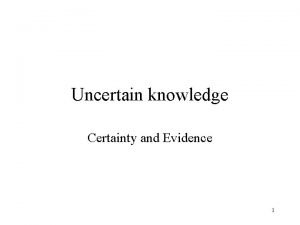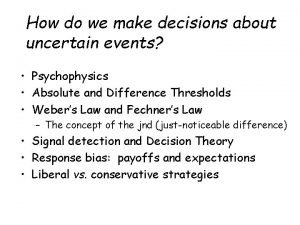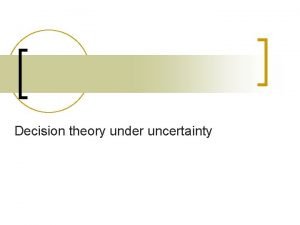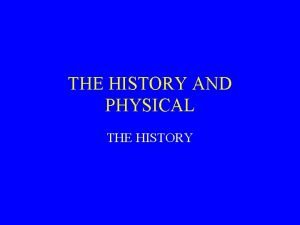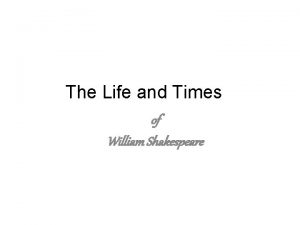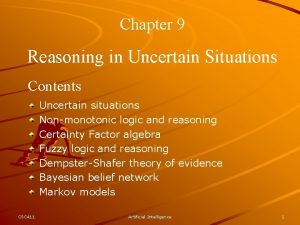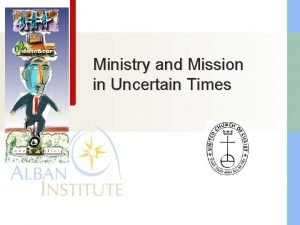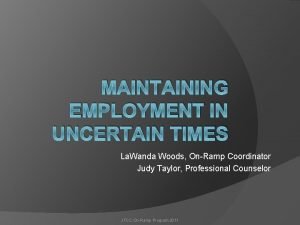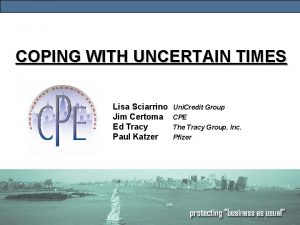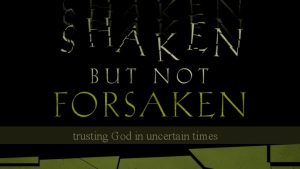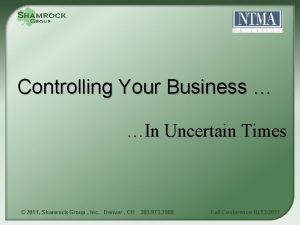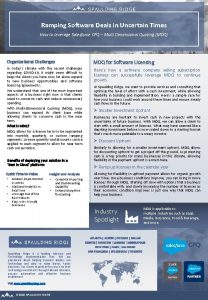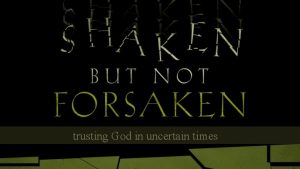Uncertain Times to Today US History and Government






















- Slides: 22

Uncertain Times to Today US History and Government NY State Regents Exam Review

Brown v. Board n Civil Rights movement gained traction n Court overturned Plessy v. Ferguson and declared “separate-but-equal” was not constitutional n Desegregation took effect slowly

March to Equality n Dr. Martin Luther King Jr. was a leader for non-violent, civil disobedience toward laws aimed at limiting civil rights – Bus Boycott (Parks), sit-ins, demonstrations (March on Washington) n Desegregation took effect in Little Rock with the aid of US troops sent by Ike n Civil Rights Act of 1964 prohibited discrimination for the federal government

Dwight D. Eisenhower n Housing Boom and Baby Boom as troops returned from war and started families n Period of economic prosperity as millions of consumer products were sold n Conformity among Americans as the fear of communism strengthened

John F. Kennedy n New Frontier proposed bold new ideas – Tax cut, Medicare, Civil Rights Legislation, and increased funding for education § Only the tax cut was passed under Kennedy n Bay of Pigs invasion was a failed attempt to overthrow Communism and Castro in Cuban Missile Crisis put the world on the brink of nuclear war

Lyndon Johnson n Great Society plan to improve the quality of life and opportunity for Americans – Civil Rights legislation § Civil Rights Act, 1964 and Voting Rights Act, 1965 – Aid to cities for urban planning and slums – Medicare Act of 1965 – War on poverty programs like Job Corps n Vietnam War escalated under Johnson

Youth Culture n Rebellious spirit developed in the 1960 s and 1970 s n Experimented openly with drugs and sex n New fashions broke from tradition n 1968 millions were protesting the war in Vietnam until 1973

Women’s Liberation n Feminist Movement of the 1960 s as women were not satisfied with traditional roles as housewives n Opposed unequal pay and sexist language n Abortion issue became divisive – 1973 Roe v. Wade case before the Supreme Court declared right to privacy gave rights to abortion in early pregnancy

Militancy n Demand for change became violent n African-Americans believed in Black Power – Black Panthers and Black Muslims challenged the traditional NAACP – Malcolm X argued using violence n Native Americans formed American Indian Movement and declared “red power” – Protested racial biases and stereotypes

The Warren Court n Under Chief Justice Earl Warren major social change came to the US n Mapp v. Ohio, 1961 (Search and Seizure) n Baker v. Carr, 1962 (Representation) n Gideon v. Wainwright, 1963 (Lawyer) n Miranda v. Arizona, 1966 – Rights of the Accused

Vietnam War n n Eisenhower sent aide to South Vietnam Kennedy sent aide and military advisors n Johnson used the Gulf of Tonkin Resolution to escalate war with the North – Domino Theory: feared communism spreading – Sent more combat troops – War grew increasingly unpopular in late 60 s n Nixon continued the war, eventually negotiating a ceasefire agreement – War Powers Act (1973) limits powers of President to involve troops without declaration of war from Congress

Richard Nixon n New Federalism cut spending on social programs and gave tax revenue to states n Foreign Policy Achievements – Negotiated ceasefire in Vietnam (ended war) – Established diplomatic relations with China – Introduced détente (lessening of tensions) with the USSR n Watergate scandal ended his Presidency

Gerald Ford n First act was to pardon President Nixon n Economy suffered from stagflation – High unemployment and high inflation – Reduction of war spending and oil crisis n Continued Nixon’s policy of détente

Jimmy Carter n Presidency hampered by poor economy n Foreign policy revolved around human rights – Panama Canal Treaty turned over control – Camp David Accords established peace between Israel and Egypt – Iranian Hostage Crisis

Ronald Reagan n Domestic Policy dealt with the economy – Supply-side Economics “Reaganomics” § Cut taxes on businesses and wealthy: Trickle-down – Increased military spending helping economy § Increased national debt n Foreign Policy focused on rebuilding American confidence after Vietnam – Worked to roll back communism by funding “freedom fighters”

George H. W. Bush n Americans with Disabilities Act prohibited discrimination against people with disabilities in employment and public accommodations n Cold War ended while Bush was in office n Gulf War 1990 -1991 fought against Iraq to free ally Kuwait from invasion

Bill Clinton n Pushed but failed to get health care reform through Congress n Impeached for lying under oath n NAFTA created a trade association between Canada, US, and Mexico n Foreign Policy initiatives taken by Clinton: – Kosovo, peace talks between Israel and Palestine, human rights push in China

George W. Bush n Won a narrow election in 2000 over Gore n No Child Left Behind became major domestic legislation in education n War on Terrorism with Sept. 11 th attacks n United States invaded Iraq to remove dictator Saddam Hussein

Technology n Last 50 years the country has shifted from Industrial economy to a “post-industrial” economy or service economy n Computers introduced in the 1990 s and the Internet have made communication easier as well as finding information

Energy n New sources of energy have been developed – Nuclear Energy has no pollution but is unsafe – Solar, wind, and hydropower are being used to replace coal and oil

Environment n Global Warming – Pollutants in the atmosphere prevent heat from escaping into space creating a Greenhouse Effect n Acid Rain – Pollutants in the air turn into acids n Thinning of the Ozone Layer n Water Pollution

Population n Population in America continues to rise – West and South are attracting migration and immigration (Hispanic) – Taxing on water and power supplies n Medical advancements allow Americans to live longer n Strain on government programs – Baby Boomers are retiring and collecting Social Security
 15 times 15 times 20
15 times 15 times 20 For today's meeting
For today's meeting We have class today
We have class today Proposal kickoff meeting agenda
Proposal kickoff meeting agenda Fingerprint ridge characteristics worksheet
Fingerprint ridge characteristics worksheet Today's lesson or today lesson
Today's lesson or today lesson Today's lesson or today lesson
Today's lesson or today lesson Lesson 2: the history of american banking and banking today
Lesson 2: the history of american banking and banking today Scientific figures
Scientific figures National government vs federal government
National government vs federal government United states history and government regents
United states history and government regents Levy in a sentence
Levy in a sentence Uncertain agreements
Uncertain agreements Risk profiling process
Risk profiling process Icd 10 tumor gaster
Icd 10 tumor gaster Representing knowledge in an uncertain domain
Representing knowledge in an uncertain domain Uncertain events
Uncertain events Which shape is this
Which shape is this History also history physical
History also history physical Shakespeare quiney
Shakespeare quiney Thermoplastics can be heated and shaped many times
Thermoplastics can be heated and shaped many times Life and times of william shakespeare
Life and times of william shakespeare Life and times of the ant
Life and times of the ant

